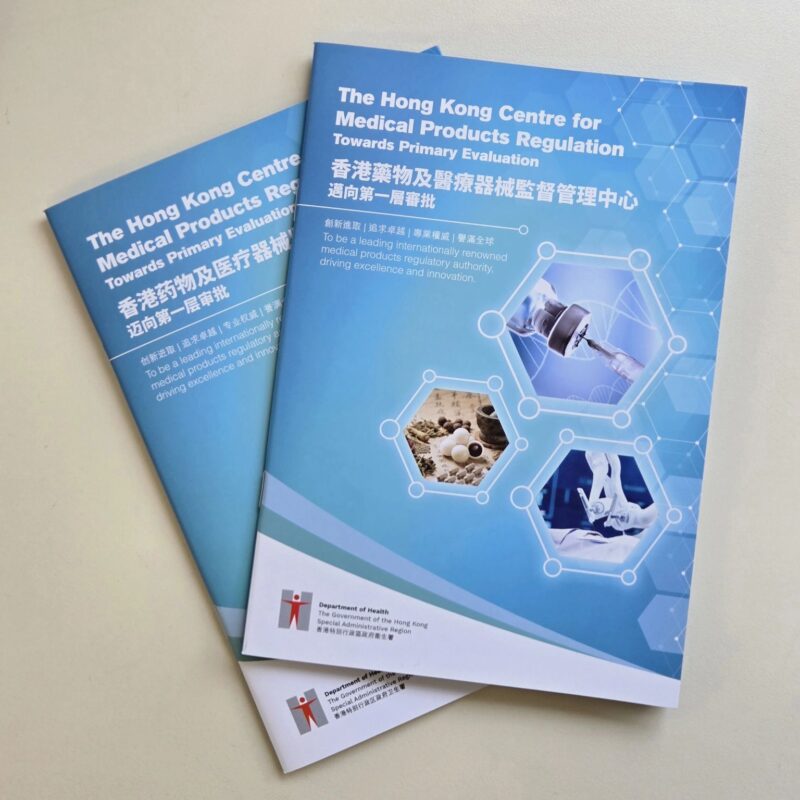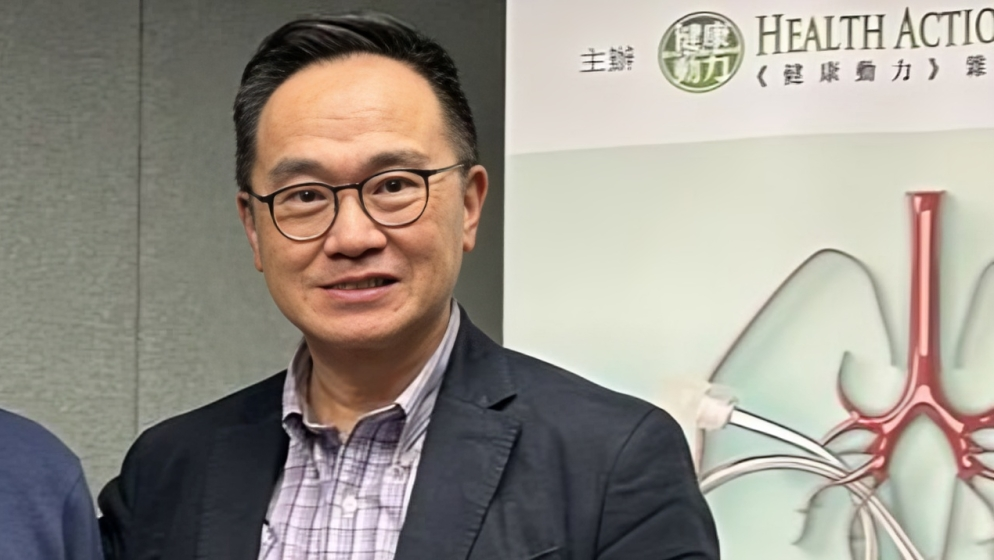Norman Ng, Director of Patient Advocacy and Public Affairs of Healthcare Thinkers, shared a post on LinkedIn by Gloria Hung, Registered Senior Pharmacist at Preparatory Office for the Hong Kong Centre for Medical Products Regulation, post:
“In the hot summer, Tangtang closed her eyes and dreamed of setting up a Medical Products Administration (MPA) similar to the U.S. Food and Drug Administration (FDA) in Hong Kong to independently approve the registration applications of various drugs. Ten years ago, this may have been a big dream, but under the promotion of the Secretary for Health Lo Chung-mao, the dream will not only become a reality, but also a precognitive dream that will create new opportunities for Hong Kong and keep pace with the pace of national development.
Tangtang’s interest in the development of medicine stemmed not only from the inspiration of his doctors’ parents, but also from his time studying pharmacology at the university medical school and his experience in the pharmaceutical industry for more than thirty years.
After graduating from university, my first job was as a research director at the Consumer Council, responsible for medical products and services, and I often had to collect the latest medical information, so I really liked the journals and magazines in the Consumer Council library – FDA Consumer Magazine. The theme of this magazine is about cancer drugs, not to promote the efficacy of drugs, but to talk about how to weigh risks and benefits.
When I started working in a pharmaceutical company, I knew that Hong Kong had always adopted a ‘second-tier mechanism’ to approve drug registration applications; that is, drugs must be approved by large foreign regulatory agencies and can apply for registration in Hong Kong if they meet the conditions.
To be honest, Hong Kong has only a population of a few million, and relying on foreign approval is a relatively simple and energy-saving approach. However, there are naturally pros and cons, and whether a drug can be registered and introduced into Hong Kong depends on foreign institutions to decide, and the speed will naturally be very slow, at least a few years later.
Even if a drug is successfully registered, it will take a lot of effort and delay for many years to be included in the HA Drug Formulary to help patients in need. Although there are named patient programs to help patients get unregistered drugs, the application process is complicated, and doctors can fill out the forms.
Based on Tangtang’s work in a pharmaceutical factory for national scientific research, he understands the hardships of not being recognized, and has spent a lot of time lobbying in recent years to ensure that national scientific research can be recognized by Hong Kong. I will not favor any country, as long as there is medical evidence to help patients, drugs from any country should be recognized and accepted.
In fact, in those years, I have been constantly thinking about how many things and systems refer to foreign countries, and when we will have our own standards and MPAs? In particular, Hong Kong is already a Hong Kong in its own hands, so when will new drugs be approved independently?
Why does Sugar Sugar want Hong Kong to have its own MPA? Some people will question whether there is a need for Hong Kong to self-approve drug registration. And can talents take on this great responsibility? Don’t worry, because establishing your own MPA cannot be done overnight, the country and Hong Kong will train many medical and drug research and approval talents, and I believe the government will also recruit overseas professionals.
I am convinced that Hong Kong needs to set up an MPA, which can control the right to access medicines, speed up the arrival of drugs in Hong Kong, introduce more competition, which is good for patients, and ensure that some drugs that are not used in foreign countries but are applicable in Hong Kong will not be ‘leaked’. Most importantly, the Hong Kong MPA can become a branch of the National Medical Products Administration (NMPA).
When I share this dream of an MPA in Hong Kong, I am usually poured cold water on it, but God paid off, and finally, I met Director Lo, who had the same dream. In an earlier interview, Mr Lo revealed that he is studying the establishment of a drug approval agency similar to the FDA, so that Hong Kong can approve drug applications on its own without waiting for foreign approvals in the future, which will not only speed up the drug approval process, but also help the local and Greater Bay Area scientific research development and materialize results.
Director Lo’s words immediately aroused a lot of heated discussions in the medical community. Lo Yuk-ming, Associate Dean of the Faculty of Medicine of CUHK, agrees that now is the right time to set up a local drug regulatory agency, believing that this move can act as a magnet to attract talents and pharmaceutical companies to Hong Kong.
Yuen Kwok-yung, Chair Professor of the Department of Microbiology at the University of Hong Kong, pointed out that without major reforms to the drug regulatory mechanism, everything from drug development research to clinical trials will be too slow, and Hong Kong will not be able to compete internationally.
Such a powerful medical authority supports the establishment of an MPA in Hong Kong, and I have great confidence in Director Lo, and Tangtang even feels that this Hong Kong MPA is no longer a dream, but a fact that will definitely be implemented.”
Quoting Gloria Hung’s post:
“The timetable for establishing the Office for the Hong Kong Centre for Medical Products Regulation (CMPR) and the roadmap for primary evaluation were announced on 26 June 2025, the week before I joined the Preparatory Office for the CMPR.
Kudos to the colleagues who have put together a concise summary in the bilingual booklets. The team at the Preparatory Office, who are high-calibre individuals from a wide professional spectrum, have helped me learn the ropes quickly. I am now immersing in the work connecting to the 3 strategic pillars: Driving excellence, Promoting innovation, and Deepening national and international collaboration.
Stay tuned for our updates.
Traditional Chinese and Simplified Chinese versions are also available.
The electronic booklets may be downloaded from the landing page.”

More posts featuring Norman Ng.


